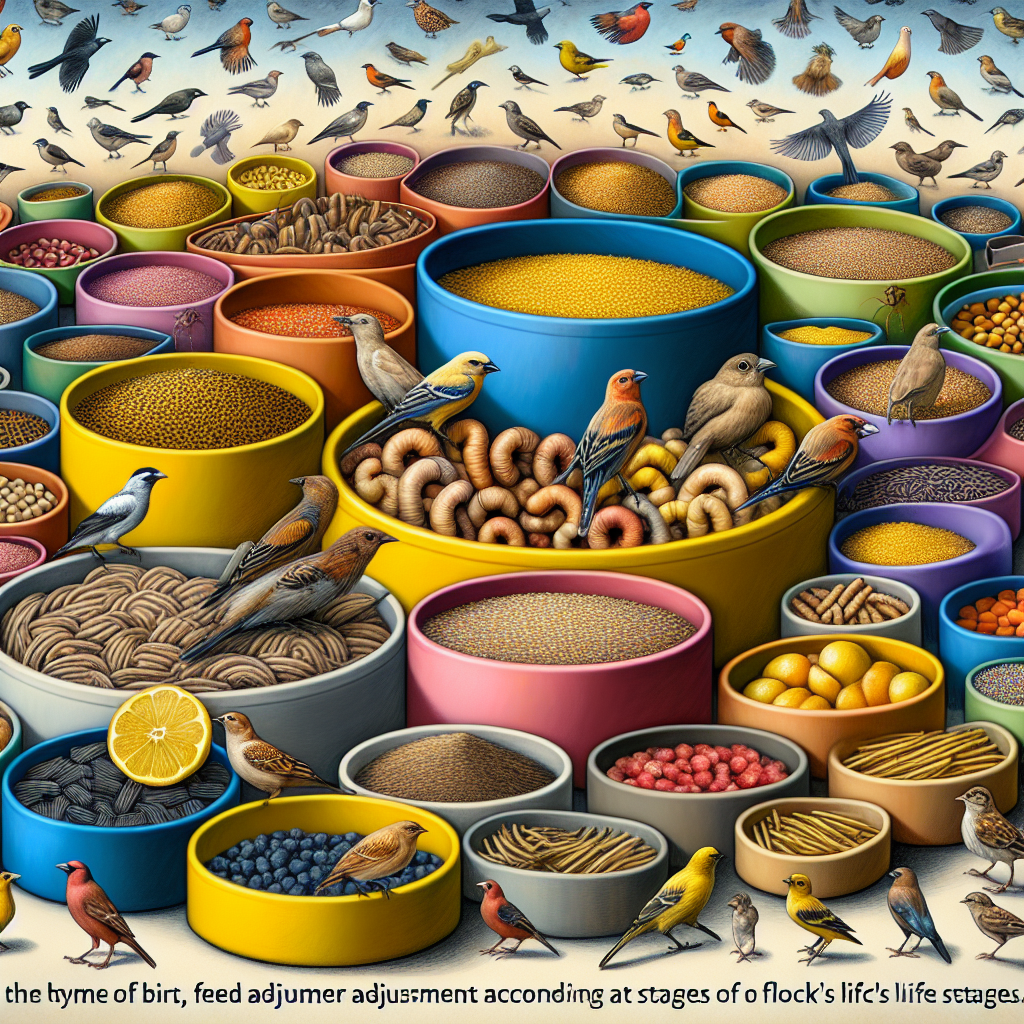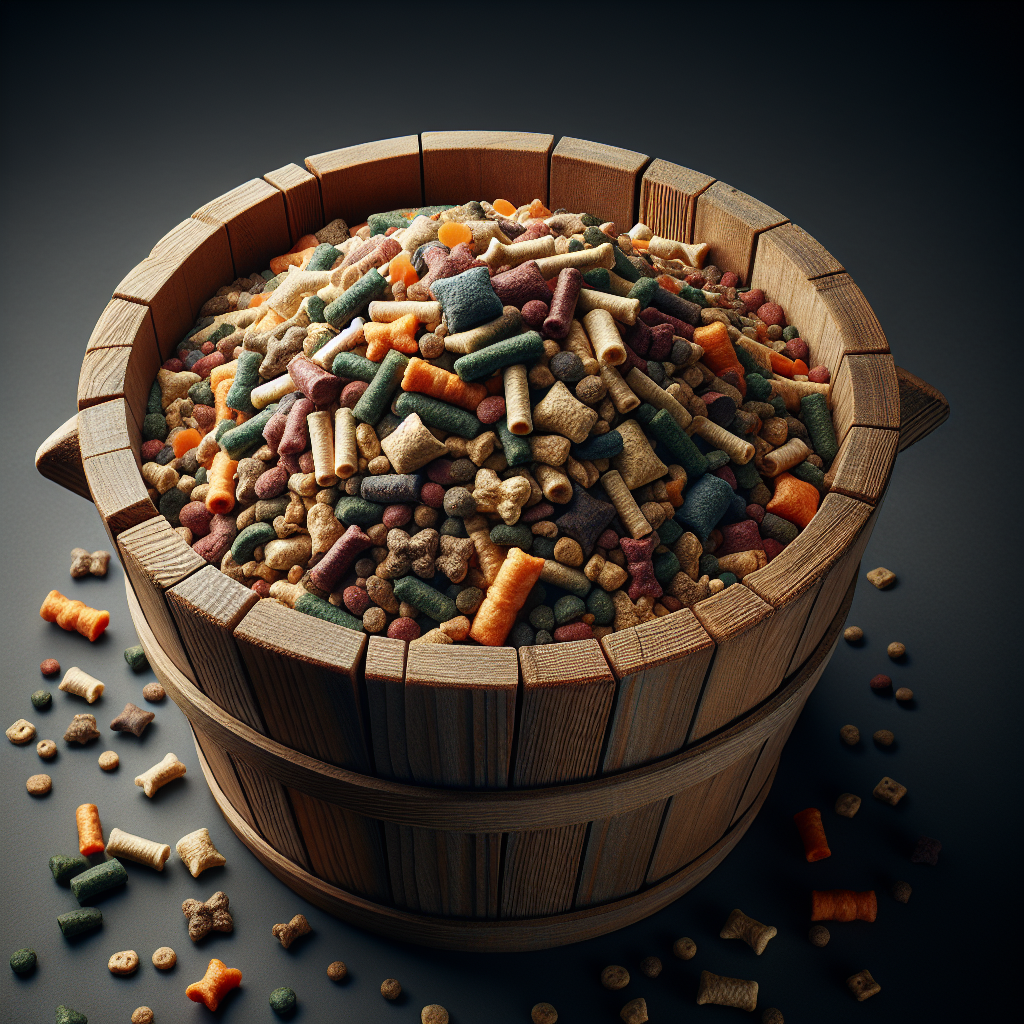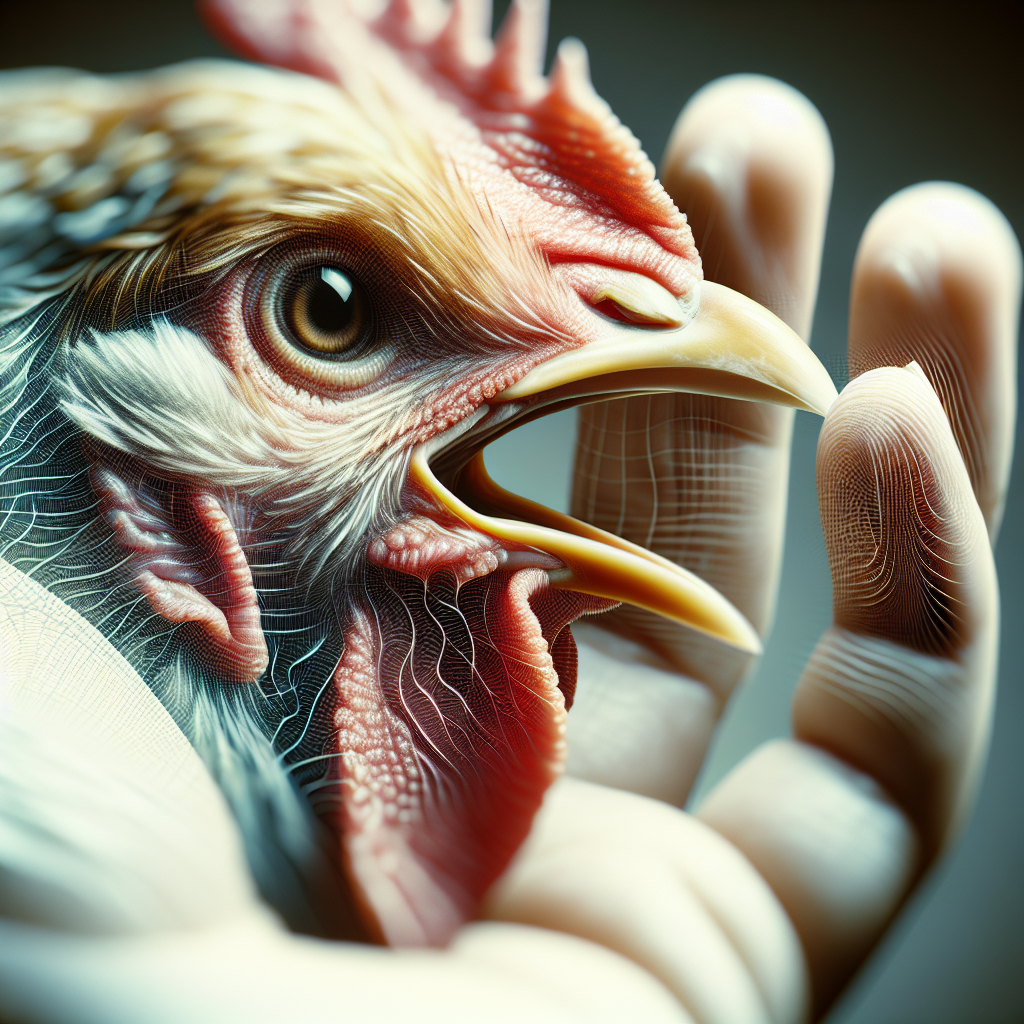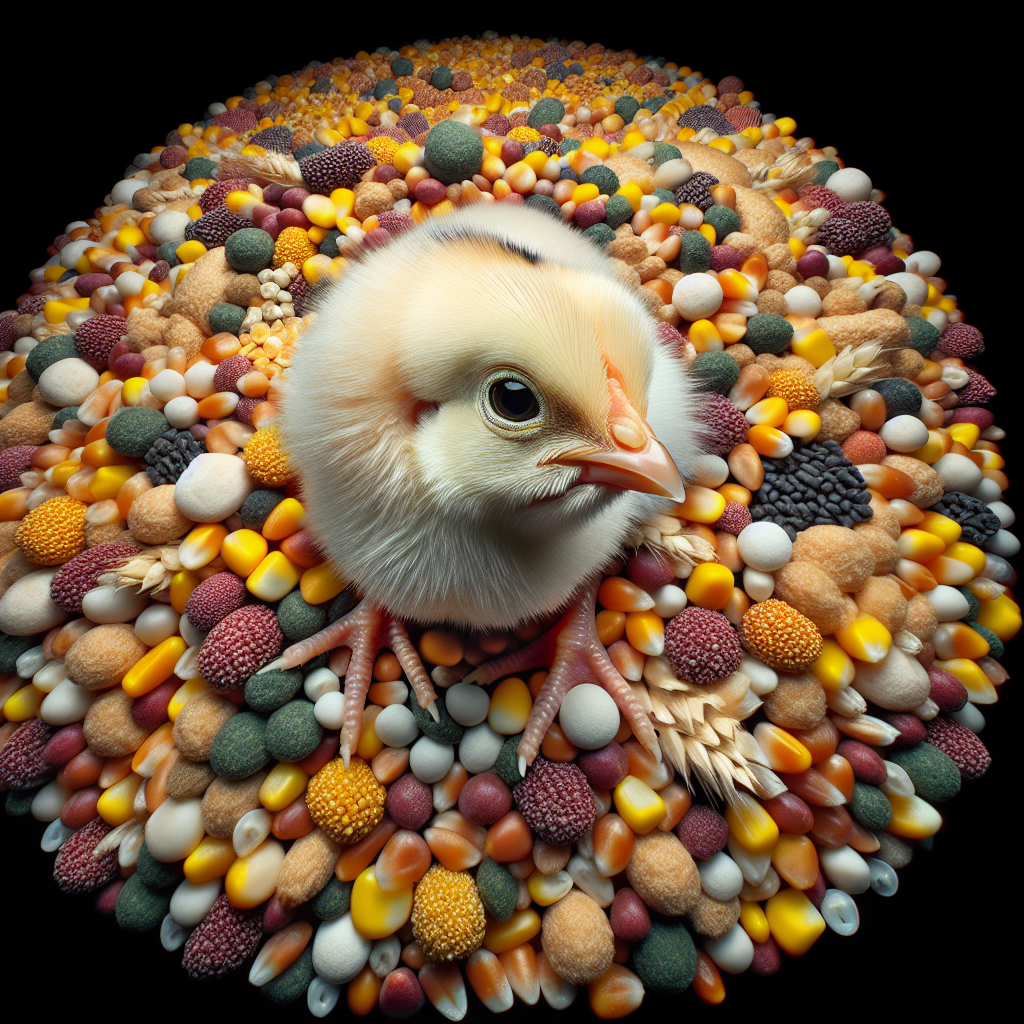In order to ensure the health and productivity of your flock, it is important to regularly reassess and adjust the feed types based on their lifecycle stages. By understanding the specific nutritional needs of your chickens at each stage, you can provide them with the best possible diet. Whether they are chicks, pullets, or laying hens, their dietary requirements will vary, and it is up to you to make the necessary adjustments. By doing so, you can ensure that your flock remains happy and healthy throughout their lifecycle.
Determining the Lifecycle Stages
Understanding the Different Lifecycle Stages
Understanding the lifecycle stages of your flock is crucial for providing them with the appropriate nutrition they need at each stage. By understanding the various stages, you can tailor their diet to support optimal growth, development, and overall health. The main stages of a flock’s lifecycle include chicks, pullets, laying hens, broilers, and meat birds. Each stage has specific nutritional requirements that must be met for the birds to thrive.
Identifying the Stage of Your Flock
To determine the stage of your flock, you need to consider their age and physical characteristics. Chicks are typically newly hatched birds, while pullets are young female chickens between the ages of 4 to 16 weeks. Laying hens are mature chickens that have reached the point where they start laying eggs. Broilers are chickens raised for meat, and meat birds are specifically bred for meat production. By observing the physical traits and behaviors of your birds, you can more accurately identify their stage and adjust their feed accordingly.
Assessing the Nutritional Needs
Importance of Assessing Nutritional Needs
Assessing the nutritional needs of your flock is crucial for their overall health and performance. Proper nutrition ensures that your birds receive the necessary nutrients to support growth, immune function, and egg production. By regularly assessing their nutritional requirements, you can identify any deficiencies or excesses and make the necessary adjustments to their diet. This helps prevent nutritional disorders and promotes optimal flock health.
Factors Affecting Nutritional Requirements
Several factors affect the nutritional requirements of your flock. These factors include their age, breed, size, activity level, and reproductive stage. Younger birds require more protein and essential amino acids to support growth, while mature laying hens require additional calcium for eggshell production. The breed of the bird also plays a role in their nutritional needs, as different breeds have specific requirements. By considering these factors, you can provide a well-balanced diet tailored to your flock’s specific needs.
Consulting an Expert or Veterinarian
If you’re unsure about the nutritional needs of your flock, it’s always a good idea to consult an expert or veterinarian. These professionals can provide guidance and help you determine the best feed types and feeding schedule for your birds. They can also conduct nutritional assessments and recommend any necessary adjustments to ensure your flock’s health and productivity. Seeking professional advice is especially important if you have specific breeds or if your flock is experiencing any health issues.
Feed Types for Chicks
Starter Feed
Chicks require a specific feed type known as starter feed during their early stage of life. Starter feed is formulated to provide the necessary nutrients for growth and development. It typically contains a high percentage of protein to support their rapid growth rate. Starter feed also contains vitamins, minerals, and amino acids to support bone development, feather growth, and immune function. The feed is usually finely ground to make it easier for chicks to consume and digest.
Transitioning to Grower Feed
As chicks grow and mature, they will eventually outgrow the starter feed. At around 4-6 weeks of age, you should start transitioning them to grower feed. Grower feed has a slightly lower protein content compared to starter feed but still provides the essential nutrients needed for continued growth and development. The feed may also contain added vitamins and minerals to support bone health and immune function. It’s important to gradually introduce the grower feed to prevent any digestive upset in the chicks.
Feed Types for Pullets
Grower Feed
Once the chicks reach the pullet stage, usually around 16 weeks of age, they should be transitioned to grower feed. Grower feed for pullets is designed to support their continued growth and development until they start laying eggs. It contains a balanced blend of protein, vitamins, and minerals to meet their specific needs. The protein content in grower feed is typically lower than starter feed to prevent excessive growth rates that could impact skeletal health.
Switching to Layer Feed
When pullets reach the point of sexual maturity and start laying eggs, it’s time to switch to a specialized feed known as layer feed. Layer feed is formulated to support egg production and the overall health of laying hens. It contains higher levels of calcium to support strong eggshell development and is also rich in vitamins, minerals, and amino acids. The feed is designed to provide the necessary nutrients to meet the increased demands of egg production.
Feed Types for Laying Hens
Layer Feed
Layer feed is specifically formulated for laying hens to provide the essential nutrients needed for egg production. It typically contains a higher percentage of calcium to support the formation of strong eggshells. Layer feed also has an optimal balance of protein, vitamins, and minerals to support overall health and reproductive function. Providing a consistent supply of layer feed is crucial for maintaining optimum egg production and shell quality.
Specialized Feeds for Specific Needs
In addition to layer feed, there are specialized feeds available for specific needs in laying hens. For example, if you have older hens experiencing a decline in egg production, you may consider adding a “senior” or “maintenance” feed to their diet. These feeds help provide the necessary nutrients for maintaining health and vitality, even as the hens age. Some specialized feeds may also be available for hens with specific health conditions or for those in intensive egg production systems.
Feed Types for Broilers
Broiler Starter Feed
Broilers, which are chickens raised specifically for meat production, require a distinct feed type called broiler starter feed. This feed is specially formulated to support rapid growth and muscle development. It contains a high protein content to meet the increased nutritional demands of fast-growing broilers. Broiler starter feed also has a balanced blend of vitamins and minerals to support bone development and overall health.
Broiler Finisher Feed
As broilers continue to grow, they will eventually transition to broiler finisher feed. This feed type is designed to support the final stages of muscle development and prepare broilers for processing. Broiler finisher feed typically has a lower protein content compared to starter feed but still provides the necessary nutrients to ensure optimal growth. The feed may also contain added supplements to enhance meat quality and flavor.
Feed Types for Meat Birds
Meat Bird Starter Feed
Similar to broilers, meat birds raised for meat production have specific feed requirements. Meat bird starter feed is formulated to ensure proper growth and development from the early stages. It contains a high protein content to support muscle development and provide essential amino acids. Meat bird starter feed also contains vitamins and minerals to promote overall health, as well as ingredients that enhance meat quality.
Meat Bird Finisher Feed
As meat birds progress towards their final stage of growth, they should be transitioned to meat bird finisher feed. This feed type is designed to support optimal weight gain and muscle development in preparation for processing. Meat bird finisher feed typically has a lower protein content compared to starter feed but still provides the necessary nutrients for successful meat production. The feed may also contain added supplements to improve meat quality and texture.
Feeding Adjustments during Special Stages
Molt Period
During the molt period, when chickens shed and regrow their feathers, their nutritional requirements may change. Feathers are mainly composed of protein, so birds experiencing molting may benefit from a higher protein diet during this time. Supplementary feeds such as feather fixer or higher protein content feeds can be provided to support feather growth and overall health. It’s important to gradually transition back to their regular feed once the molting period is over.
Reproduction and Breeding
When breeding or reproduction is desired, nutritional adjustments are necessary to support successful mating and egg fertilization. Providing extra protein and key nutrients during the breeding season can help improve fertility rates and increase the chances of successful reproduction. Consulting with a poultry specialist or veterinarian can provide valuable guidance on the specific dietary requirements during this stage.
High Stress Situations
In high-stress situations such as extreme weather conditions, disease outbreaks, or transportation, birds may require additional nutritional support. During these times, offering high-energy feeds or supplements can help the birds cope with the stress and maintain their health and productivity. It’s essential to closely monitor the flock during these periods and consult with an expert to ensure the correct nutritional adjustments are made.
Monitoring and Observing Flock Behavior
Behavioral Indicators of Nutritional Deficiencies
Regular observations of your flock’s behavior can provide valuable insights into their nutritional well-being. Signs of nutritional deficiencies can manifest in various ways, such as reduced feed intake, weight loss, reduced egg production, poor feather quality, abnormal feather pecking, or lethargy. Close attention to these behaviors can help you identify if your flock’s current feed type is meeting their nutritional needs adequately.
Importance of Regular Observations
Regularly observing your flock is essential for maintaining their health and productivity. By regularly monitoring their behavior, feed consumption, weight, and egg production, you can quickly identify any changes or abnormalities. This allows you to take timely action and make appropriate adjustments to their diet if necessary. Regular observations also help you gauge the overall well-being of your flock and detect any potential health issues early on.
Common Problems and Solutions
Underfeeding
Underfeeding can result in malnutrition and poor growth or egg production in your flock. If you notice signs of underfeeding, such as weight loss, reduced egg production, or the birds appearing weak and lethargic, it’s important to increase the amount of feed provided. Consult with an expert or veterinarian to determine the appropriate adjustments to ensure your flock receives adequate nutrition.
Overfeeding
Overfeeding can lead to obesity, decreased egg production, and other health problems in your flock. It’s important to ensure that you’re providing the correct amount of feed for your specific flock’s needs. Monitoring feed consumption, body condition, and egg production can help prevent overfeeding. If necessary, adjust the feed amounts accordingly to maintain an optimal body condition and health.
Balancing Nutritional Requirements
Balancing the nutritional requirements of your flock is crucial for their overall health and well-being. Ensuring that their feed contains the right amount of protein, vitamins, and minerals for their specific lifecycle stage is essential. This may require periodically reassessing their nutritional needs and adjusting their diet accordingly. Regular consultation with an expert or veterinarian can provide valuable guidance on balancing the nutritional requirements of your flock.
In conclusion, understanding the different lifecycle stages of your flock and assessing their nutritional needs is essential for providing them with the optimal diet. By identifying the stage of your flock, adjusting their feed types accordingly, and monitoring their behavior, you can ensure their overall health, growth, and productivity. Regular observation, consultation with experts, and making appropriate feeding adjustments can help prevent nutritional deficiencies and promote the well-being of your flock throughout their lifecycle.




